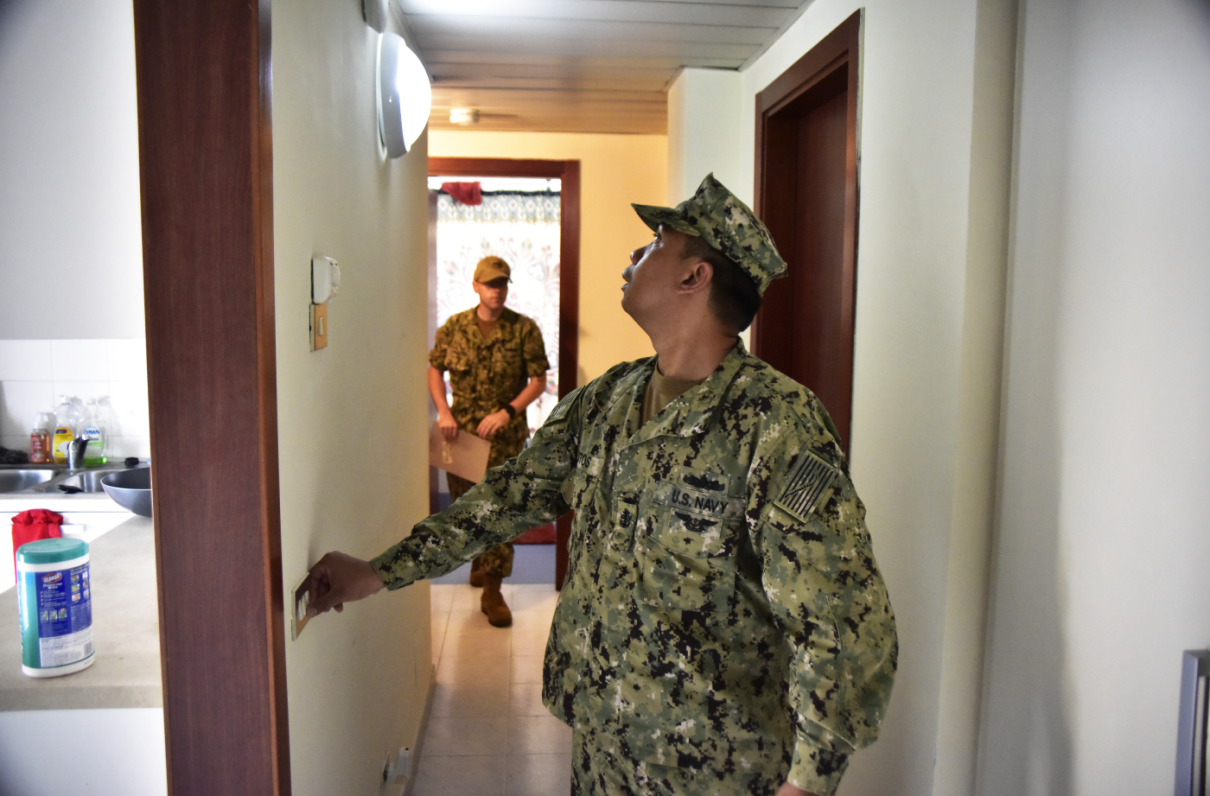MOAA continues to drive efforts to improve military housing on two fronts: Ensuring DoD and key stakeholders implement the robust set of provisions from the FY 2020 National Defense Authorization Act (NDAA), and advocating for further improvements in this year’s NDAA.
The FY 2021 NDAA process is well underway, and MOAA has actively engaged with Congress to advise on further steps needed to make systemic changes within both the Military Housing Privatization Initiative and government-owned housing.
Here is what we know and what you can expect in this year’s NDAA:
House
The House version of the NDAA so far focuses on further steps to mitigate environmental hazards and makes considerations to improve both privatized and government-owned housing. House provisions related to housing include:
- Public guidance to facilitate return of displaced tenants.
- Public guidance on mold mitigation in privatized housing, including creation of a working group to establish best practices.
- Expansion of Uniform Code of Basic Standards for privatized housing, and establishment of hazard and habitability inspection and assessments for government-owned family housing.
- Establishment of a housing liaison for the Exceptional Family Member Program (EFMP).
- Requiring a DoD report on criteria used to evaluate performance of privatized housing partners that receive incentive fees.
- Requiring a report on DoD’s oversight and role in managing privatized housing.
- Requiring a DoD report on government-owned family housing environmental hazards.
[RELATED: Key House Committee Moves to Block MTF Restructuring, Medical Billet Cuts]
This week, the full House of Representatives is debating and voting on further amendments for the FY 2021 NDAA. One such amendment, introduced by Rep. Jimmy Panetta (D-Calif.), would require an annual public assessment of the performance metrics used for privatized housing partners. That amendment was one of hundreds passed “en bloc” July 20, meaning it will be part of the bill voted on by the full House.
Meanwhile, the House Appropriations Subcommittee on Military Construction and Veteran Affairs (MilCon-VA) laid out its plans to address housing issues. The bill includes $135 million in funding to address conditions of military privatized housing, funding that wasn’t part of the administration’s original budget request. The MilCon-VA bill also stipulates DoD submit a number of reports related to housing and directs DoD to maintain a database that tracks housing issues.
Senate
The Senate version of the NDAA also addressed medical concerns related to military housing. Housing-related Senate provisions include:
- Direct hiring authority for military housing office positions.
- Audit of medical conditions of tenants who have lived in unsafe privatized military housing.
- Language prohibiting DoD and partners from allowing tenants to live in substandard housing.
- Require DoD to implement recommendations outlined in a recent DoD Inspector General report on military housing.
[RELATED: Child Care Help for Military Families Part of House and Senate NDAA Drafts]
Language in both the House and Senate report recommends substantial increases to the authorized amount of spending on military privatized housing support to better facilitate hiring of housing staff and support needs for maintenance and repair work.
Last year, the FY 2020 housing provisions passed with bipartisan and bicameral support. We can expect the same cooperation this year, and MOAA will continue to advocate to ensure these provisions are kept in the final version of the FY 2021 NDAA.
MOAA Knows Why You Serve
We understand the needs and concerns of military families – and we’re here to help you meet life’s challenges along the way. Join MOAA now and get the support you need.

